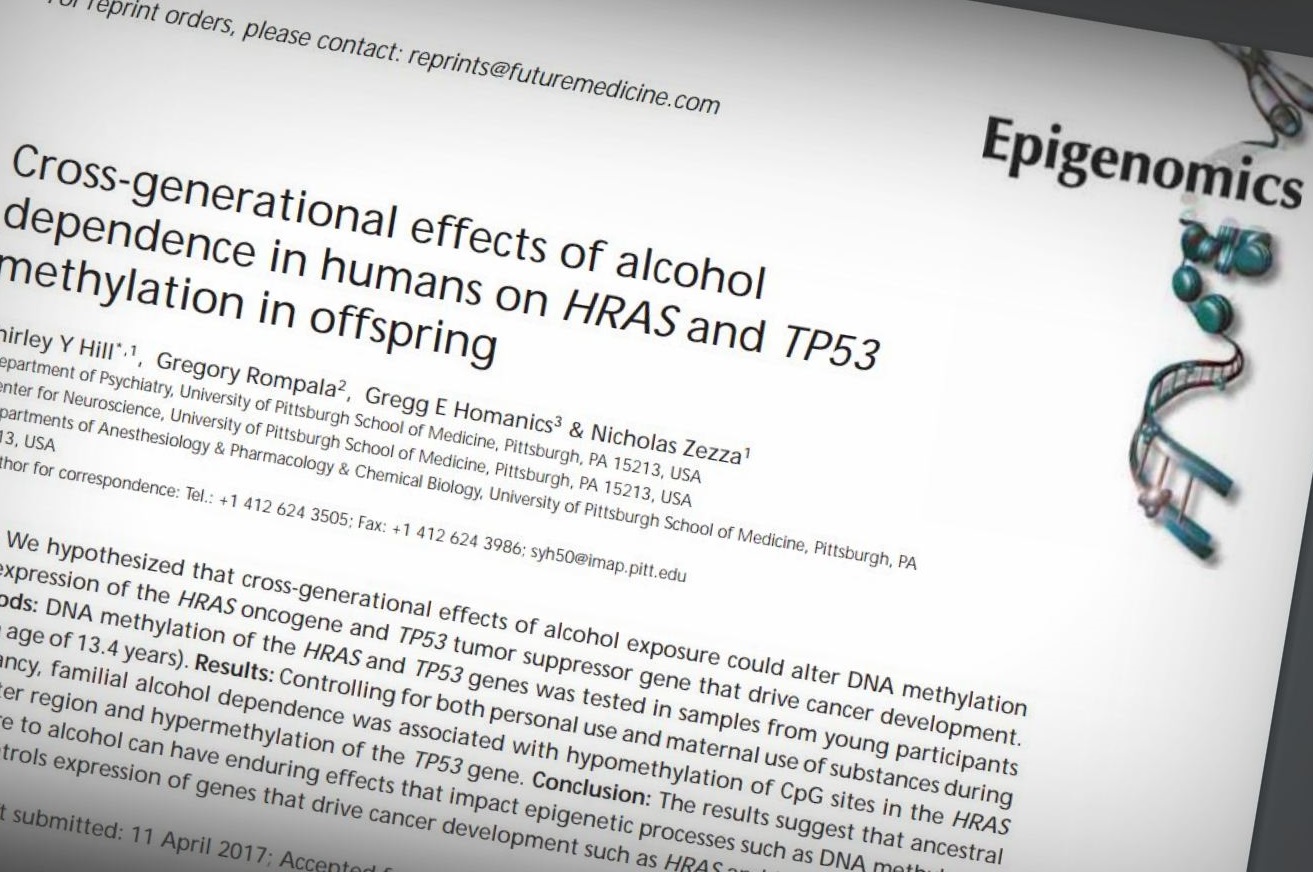Hill et al. Report in Epigenomics that Individuals with a Family History of Alcohol Dependence May Be at Higher Risk of Developing Cancer

Alcohol use is responsible for about 4% of all deaths worldwide. Alcohol abuse and dependence are also frequently seen in individuals diagnosed with head and neck cancer. Defining the factors that contribute to this increased risk for these cancers is critical to the ultimate goal of reducing cancer development. Because about 30% of all types of cancers involve the HRAS oncogene, its expression is of importance to understanding individual cancer risk.
In a study led by Dr. Shirley Hill, Professor of Psychiatry, Psychology, and Human Genetics, investigators tested the hypothesis that cross-generational effects of alcohol exposure could alter DNA methylation and expression of the HRAS oncogene that promotes cancer development, and the TP53 tumor suppressor gene that can ameliorate cancer development. A total of 503 participants were included in the study; 62 first- and second-generation individuals (parents and grandparents) and 441 third generation offspring for whom DNA samples had been collected and assessed for methylation changes in her lab. With colleagues from the University of Pittsburgh Department of Anesthesiology, Dr. Hill obtained measures of gene expression for the HRAS gene in samples from the participants who were on average 13.4 years old at the time of DNA collection. These youngsters have been followed for up to 20 years and now provide an opportunity for assessing the impact of genetic variation on health and disease.
The researchers found that controlling for both personal use and the mothers’ prenatal use of substances, familial alcohol dependence was associated with hypomethylation of CpG sites in the promoter region of the HRAS oncogene, and hypermethylation of the TP53 tumor suppressor gene. Hypomethylation and its attendant increased expression of the HRAS oncogene can place an individual at greater risk for developing cancer. Hypermethylation of the TP53 gene reduces the potential for expression of its tumor-suppressing effects. Therefore, the results of this study suggest that individuals with a family history of alcohol dependence may be at higher risk of developing cancers involving the HRAS and TP53 genes. Dr. Hill’s findings are particularly relevant to public health initiatives designed to provide early screening for cancers, particularly those associated with HRAS and TP53.
Cross-generational Effects of Alcohol Dependence in Humans on HRAS and TP53 Methylation in Offspring
Hill SY, Rompala G, Homanics GE and Zezza N
Epigenomics, Published online 2017, 9:1189-1203. doi: 10.2217/epi-2017-0052
